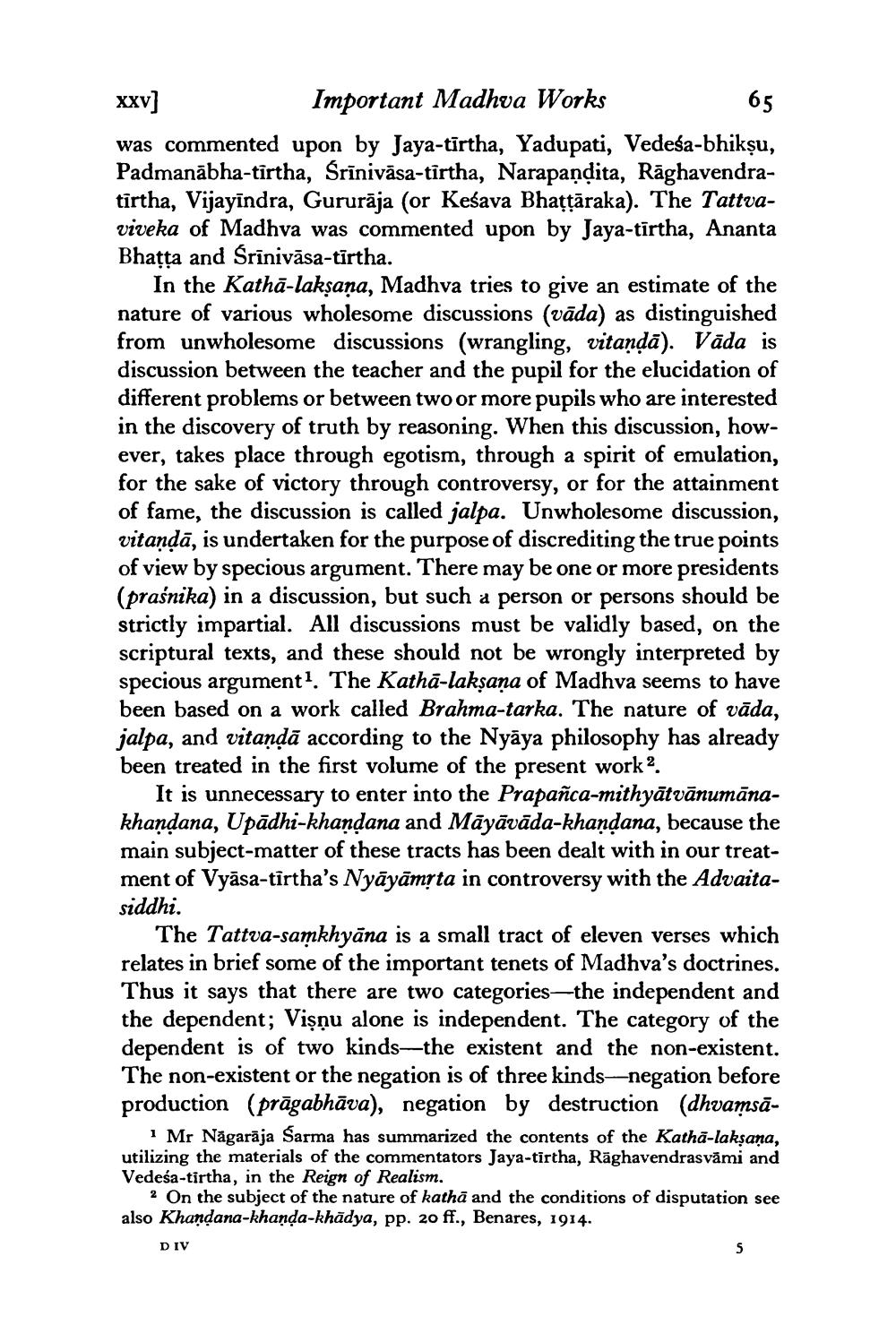________________
65
XXV]
Important Madhva Works was commented upon by Jaya-tīrtha, Yadupati, Vedeśa-bhikṣu, Padmanābha-tīrtha, Śrīnivāsa-tīrtha, Narapandita, Rāghavendratīrtha, Vijayīndra, Gururāja (or Keśava Bhattāraka). The Tattvaviveka of Madhva was commented upon by Jaya-tīrtha, Ananta Bhatta and Srinivasa-tīrtha.
In the Kathā-lakșana, Madhva tries to give an estimate of the nature of various wholesome discussions (vāda) as distinguished from unwholesome discussions (wrangling, vitandā). Vāda is discussion between the teacher and the pupil for the elucidation of different problems or between two or more pupils who are interested in the discovery of truth by reasoning. When this discussion, however, takes place through egotism, through a spirit of emulation, for the sake of victory through controversy, or for the attainment of fame, the discussion is called jalpa. Unwholesome discussion, vitaņdā, is undertaken for the purpose of discrediting the true points of view by specious argument. There may be one or more presidents (praśnika) in a discussion, but such a person or persons should be strictly impartial. All discussions must be validly based, on the scriptural texts, and these should not be wrongly interpreted by specious argumenti. The Kathā-laksaņa of Madhva seems to have been based on a work called Brahma-tarka. The nature of vāda, jalpa, and vitandā according to the Nyāya philosophy has already been treated in the first volume of the present work?
It is unnecessary to enter into the Prapanca-mithyātvānumānakhandana, Upādhi-khandana and Māyāvāda-khandana, because the main subject-matter of these tracts has been dealt with in our treatment of Vyāsa-tirtha's Nyāyāmīta in controversy with the Advaitasiddhi.
The Tattva-samkhyāna is a small tract of eleven verses which relates in brief some of the important tenets of Madhva's doctrines. Thus it says that there are two categories—the independent and the dependent; Vişnu alone is independent. The category of the dependent is of two kinds—the existent and the non-existent. The non-existent or the negation is of three kinds--negation before production (prāgabhāva), negation by destruction (dhvamsā
1 Mr Nägarāja Sarma has summarized the contents of the Kathā-laksana, utilizing the materials of the commentators Jaya-tīrtha, Rāghavendrasvāmi and Vedeśa-tirtha, in the Reign of Realism.
2 On the subject of the nature of kathā and the conditions of disputation see also Khandana-khanda-khādya, pp. 20 ff., Benares, 1914.
DIV




